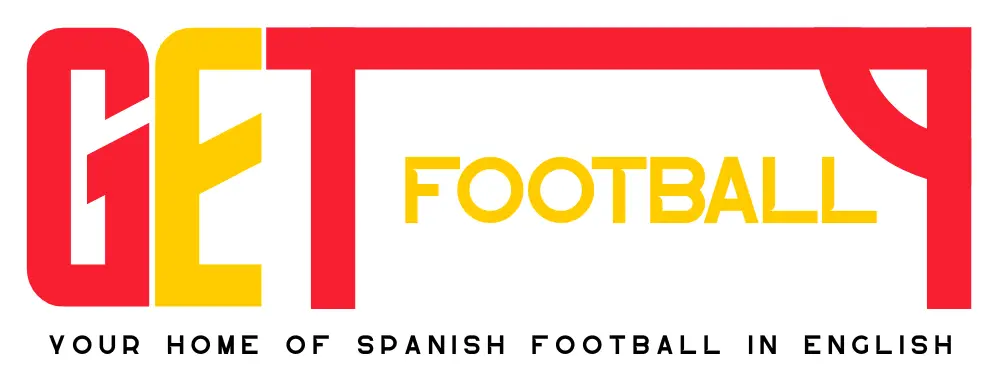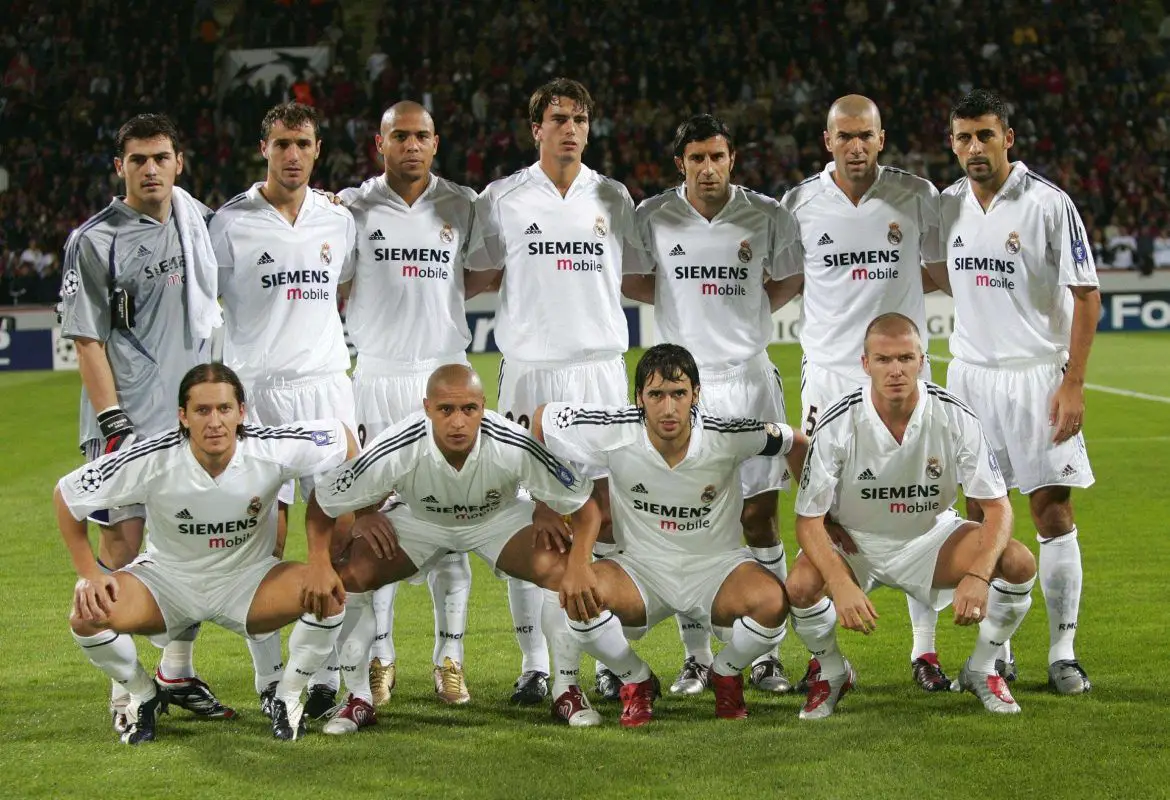Real Madrid’s first modern-day Galácticos brought goals, glitz and glamour to the Spanish capital – but few teams have underachieved so markedly.
The term ‘Galáctico’, Spanish for ‘Superstar’, was first coined during Santiago Bernabéu’s reign as club president in the 1950s, when his signings of Alfredo Di Stéfano, Ferenc Puskás and co. saw the club enjoy it’s first era of dominance, winning six European Cups and 12 LaLiga titles.
Real won two UEFA Champions Leagues in 1998 and 2000 under the presidency of Lorenzo Sanz, but he was not re-elected because Florentino Pérez’s promises of stellar, record-breaking signings and free-flowing football saw him take the majority of the votes.
And Pérez duly delivered at the start of his tenure in 2000, with the signing of Luís Figo from El Clásico rivals Barcelona for a world-record €62 million.
He promised more Galácticos, paid for using the funds generated from selling the club’s training ground, the Ciudad Deportiva, for €480 million and building a new complex at a fraction of the cost.
In 2001, Pérez sanctioned the signing of Zinedine Zidane from Juventus for €75 million which coincided with the appointment of Vicente del Bosque as manager.
For a short while, the Galácticos policy was renamed to ‘Zidanes y Pavónes’ (‘Zidanes and Pavons’) in English, in reference to Zidane and promising defender Franciso Pavón, a product of the club’s youth system.
But it was not as simple as combining gargantuan signings with homegrown talents. No, del Bosque was looking to amalgamate the virtuosity and versatility of attacking stars, like Zidane, with the brawn of defensive workhorses like Pavón.
Neither happened during Pérez’s first reign.
Del Bosque had experienced first-hand the importance of such chemistry. During his 16-year stay at the club as a player between 1968 and 1984, he played alongside ‘La Quinta del Buitre’, ‘The Vulture’s Cohort’. They were five homegrown players, Emilio Butragueño, Manolo Sanchís, Rafael Martín Vázquez, Míchel and Miguel Pardeza, who were pivotal as Real dominated Spanish football in the 1980s.
Sure, there was immediate success during Pérez’s tenure, with the club winning two LaLiga titles and another Champions League in 2002, with Zidane’s stunning volley sealing a 2-1 win over Bayer Leverkusen, but as more Galácticos arrived, silverware did not.
Ronaldo was signed in 2002 from Inter Milan, David Beckham joined from Manchester United the following year, Michael Owen arrived from Liverpool in 2004 and Robinho and Sergio Ramos both followed in 2005, bringing Pérez’s total spending past €300 million.
He also tried to lure Franceso Totti from AS Roma, fresh from their Serie A title in the 2000-01 season, but the Italian did not wish to leave.
But the period between winning the 2002-03 LaLiga title and the beginning of the following campaign is seen as the beginning of the end of Pérez’s first spell as club president.
The signing of Beckham was a major coup, of course, but he was unwilling to improve the contract of Claude Makélélé, an immeasurably important defensive midfielder who allowed the attacking players before him to flourish. The Frenchman left for Chelsea and, predictably, played a major part in Jose Mourinho’s instant success at Stamford Bridge.
Del Bosque was furious, along with reportedly many of the squad including Fernando Hierro. He was sacked despite his fantastic success during his relatively short spell as manager, and players on his side, like Hierro and Steve McManaman, soon followed.
His replacement was Carlos Quieroz, who oversaw a fourth-placed finish in 2003-04. They finished only seven points behind the unexpected champions, Valencia, in a close-run title fight along with Barcelona and Deportivo la Coruna, but it was still an unprecedented failure.
Beckham, a fantastic right-sided midfielder for club and country up to his move to Real, was often employed in a central, defensive midfield role to fill the void left by Makelele, with Figo operating on the right.
Sure, his passing made him more than capable of playing in the centre, but without a defensive, steely, athletic player behind him to cover his tracks, he was largely ineffective against teams who dared to press and counter Real.
The ‘Zidanes y Pavones’ policy supported by Del Bosque did not last long, either. Pavon saw his first-team opportunities gradually dwindle, having played 10 matches in the 2002 Champions League success.
Pérez reportedly took control of which players played regularly according to the transfer fees and attacking flair they brought to the team, particularly with Quieroz as manager. It was ironic that he could not see a future for young homegrown players for his Real Madrid, even with Iker Casillas, Guti and Raúl widely considered among the world’s best in their respective positions.
A lack of interest from Pérez in defensive talent in general was also harming the team. A series of defensive signings failed to impress, notably Jonathan Woodgate and Walter Samuel, and even Ramos was uninspiring until after the end of Pérez’s first reign in 2006.
Javier Portillo, a striker who broke Raúl’s goal scoring records in the club’s youth setup with over 150 goals in seven seasons, was also rarely afforded first-team chances before eventually enduring an underwhelming career away from the Spanish capital.
One of his worst mistakes was his choice to not keep Samuel Eto’o at the club after his loan spell at Real Mallorca in favour of signing injury-prone Owen. Of course, Eto’o went on to star for Barcelona.
Quieroz was sacked after the 2003-04 season, and three more managers, José Camacho, Mariano García Remón and Vanderlei Luxemburgo all had short stints during the following campaign as Real came second in LaLiga to Barcelona.
Luxemburgo was replaced by Juan Caro during the 2005-06 season, which again came to a close with a second-placed finish to Barcelona, who were also crowned Champions League winners that year. Real, though, had not progressed further than the quarter-finals since 2003.
But the second Galáctico era – albeit with Roman Calderon as president after Pérez’s resignation in February 2006 – did finish in success.
Fabio Capello was appointed as manager, and new signings Fabio Cannavaro, on the back of captaining Italy to World Cup success in 2006, and Ruud van Nistelrooy starred in a first LaLiga title win since 2003, with Zidane and Ronaldo both gone.
The final nail in the coffin of the first Pérez Galácticos era was the departure of David Beckham to Major League Soccer’s LA Galaxy in 2007. Capello had often left him out of the starting side, admitting that, whilst he was a tremendous player, he could not fit him in the team. Without him and with Roberto Carlos also departed, they retained the LaLiga title in 2007-08.
Which begs the question: had Del Bosque been allowed to manage the team as he desired, or the managers that followed him until Capello been able to form a coherent side which was as tough defensively as it was exciting in attack, how successful could the Galácticos have been?
The answer? Probably as successful, or perhaps even better, than the side which has dominated the Champions League and Club World Cup during Pérez’s second term.











